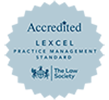
How Much Interest Can You Charge on a Late Commercial Payment?
Did you know that if your business is owed money by another business, then you may be entitled to charge interest on the outstanding debt? To find out how much interest you could be entitled to, and how to claim it, continue reading…
The answer
We’ll begin by providing you with the information you came here for… how much interest can you charge on a late commercial payment?
According to the latest UK Government advice, ‘8% plus the Bank of England base rate’ is the amount you can charge in interest on a late commercial payment.
In addition to being able to charge interest on a late payment, creditors are also able to claim for compensation in the form of a fixed sum of money. The size of this fixed sum of money will be determined by the size of the unpaid debt (which we’ll cover in more detail later).
Statutory interest vs contract interest
Before we proceed, it’s important that we explain the difference between ‘statutory interest’ and ‘contractual interest’.
Contractual interest
Contractual interest refers to any rates of interest that have been agreed in a contract between two businesses.
For example, your business may agree to provide a particular service to another business. You draw up a contract outlining the terms and conditions of the service. As a matter of course, it should be standard practice for your business contracts to set out a rate of interest that can be charged in the event of a late payment.
This rate of interest will be classed as ‘contractual interest’.
It’s up to you and your business how much you set this rate of interest at. However, it’s important that it’s not too low or too high a rate.
In other words, the rate of contractual interest must be fair and reasonable and act a ‘substantial remedy’ to the creditor in the event of a late payment but must not be so high as to be deemed an unenforceable penalty.
Put another way, the rate of interest must be proportionate to the contract and your business’ interests.
Statutory interest
Statutory interest refers to the statutory rate of interest that is applied to late commercial payments (as outlined in the opening of this article).
The statutory interest rate is designed to be a ‘fall back’ in the event that a contract between two parties does not set out a provision for interest on late payments.
Note - if you have set out a rate of interest in a contract which is fair and reasonable generally you should stick to this.
How to calculate interest on late commercial payments
So, if you’ve established that your business is owed money by another - and that the contract does not contain a provision for fair and reasonable interest - then you will be entitled to claim interest at the statutory rate.
In order to figure out exactly how much statutory interest you can charge, you will need to begin with the following pieces of information:
- The total amount owed by the debtor.
- The Bank of England base rate.
You should have a record of the amount owed by the debtor within your business’ financial records. The current base rate can be found on the homepage of the Bank of England website.
Note - the Bank of England base rate is subject to change and can theoretically be reviewed up to eight times a year at the Bank’s Monetary Policy Committee (MPC) meetings. Thus, it’s worthwhile double checking what the rate is on a periodic basis.
Once you’ve secured that information, you’ll be in a position to calculate the amount of interest you can charge the debtor. For the purposes of issuing any Court proceedings, the interest which you can claim is based on the rates applying as of the 1st January and the 1st July, your calculations must reflect the Bank of England base rate on that day plus the 8%.
To provide further context, let’s walk through a practical example:
- Your business is owed £1,000 by another business. The Bank of England base rate is currently set at 5% (as of 1st July 2023).
- Thus, the amount of interest you are able to charge is 13% (8% + 5% = 13%)
- So, in this example, the annual statutory interest on the debt would be £130 (1,000 x 0.13 = £130).
- To work out the daily interest rate on the debt, just take the annual amount (£130) and divide by 365 (130 / 365 = 0.35). This gives you a daily interest of 35p.
Note - the statutory interest that can be charged is simple interest and not compound interest.
You can use the Thomas Higgins Ltd Debt Calculator to see how much it will cost to collect your debt.
When entering your debtor information for a Letter Payment Demand letter our website/app will automatically calculate your interest and compensation. On successful recovery, you will keep 100% of the interest and compensation; not every debt collector or solicitor does this.
Is it legal for businesses to charge interest on late commercial payments?
The ability for businesses to charge interest on late commercial payments stems from the Late Payment of Commercial Debts (Interest) Act.
The Act, which was first introduced in 1998, provides businesses with the right to charge interest on overdue accounts relating to a sale of goods, the hiring of goods or to a supply of services.
Whilst the Act was originally designed for small to medium-sized businesses (with 50 or fewer employees) to charge interest to larger businesses or public sector organisations it has since been amended.
On 22nd June 2002, the Act was amended so that all businesses, including public sector organisations, have the right to claim interest from any other business, small business or organisation.
The Act extends to England, Scotland, and Northern Ireland.
Note - the Late Payment of Commercial Debts (Interest) Act does not apply to contracts between businesses and consumers. It also doesn’t apply to certain types of international contract.
How much compensation can businesses claim for late commercial payments?
In addition to being able to claim interest on late payments, businesses are now also able to claim a fixed monetary amount in compensation from their debtors.
It is the Late Payment of Commercial Debts (Interest) Act that introduced the ability for businesses to claim compensation.
The total amount of compensation that can be claimed in relation to a late commercial payment is determined by the size of the debt.
The table below shows the level of compensation that a creditor can claim:
| Size of unpaid debt | Compensation |
|---|---|
| £0.01 to £999.99 | £40.00 |
| £1,000 to £9,999.99 | £70.00 |
| £10,000 and over | £100.00 |
As a result of a further amendment to the Late Payment of Commercial Debts (Interest) Act in the form of the Late Payment of Commercial Debts Regulations in 2013, creditors are also able to claim ‘the reasonable costs of collecting the debt where these exceed the amount of compensation’.
When can a business start charging interest and make a claim for compensation on a late commercial payment?
Having money tied up in unpaid invoices can have a detrimental impact on a business’ cash flow. Which is why many businesses are keen to know when they can start charging interest on late commercial payments.
Under the terms of the Late Payment of Commercial Debts (Interest) Act statutory interest can start accruing from:
- 30 days after the goods are supplied, or the service is completed.
- 30 days after receipt of invoice (or the customer is told the amount due is payable).
- The agreed date for payment.
As long as your claim sits within the above boundaries, you’ll be in a position to make a legitimate claim for interest and compensation against the debtor business.
With regard to claims for compensation, you are allowed to claim for compensation if your invoice is overdue by as little as a day.
A business owes me money. How do I go about charging interest and claiming compensation?
If you want to begin charging interest on a late commercial payment (and initiate a claim for compensation), then the easiest way to do this is to instruct a qualified and experienced debt recovery firm of Solicitors.
Here at Thomas Higgins Limited, Solicitors our Late Payment Demand (LPD) letters have proven to be an affordable and highly effective way for businesses to claim interest and compensation in relation to late commercial payments.
Simply open an account with us, and you’ll be able to issue instructions, access your existing cases, view copies of correspondence we have received and any letters we have sent on your behalf.




